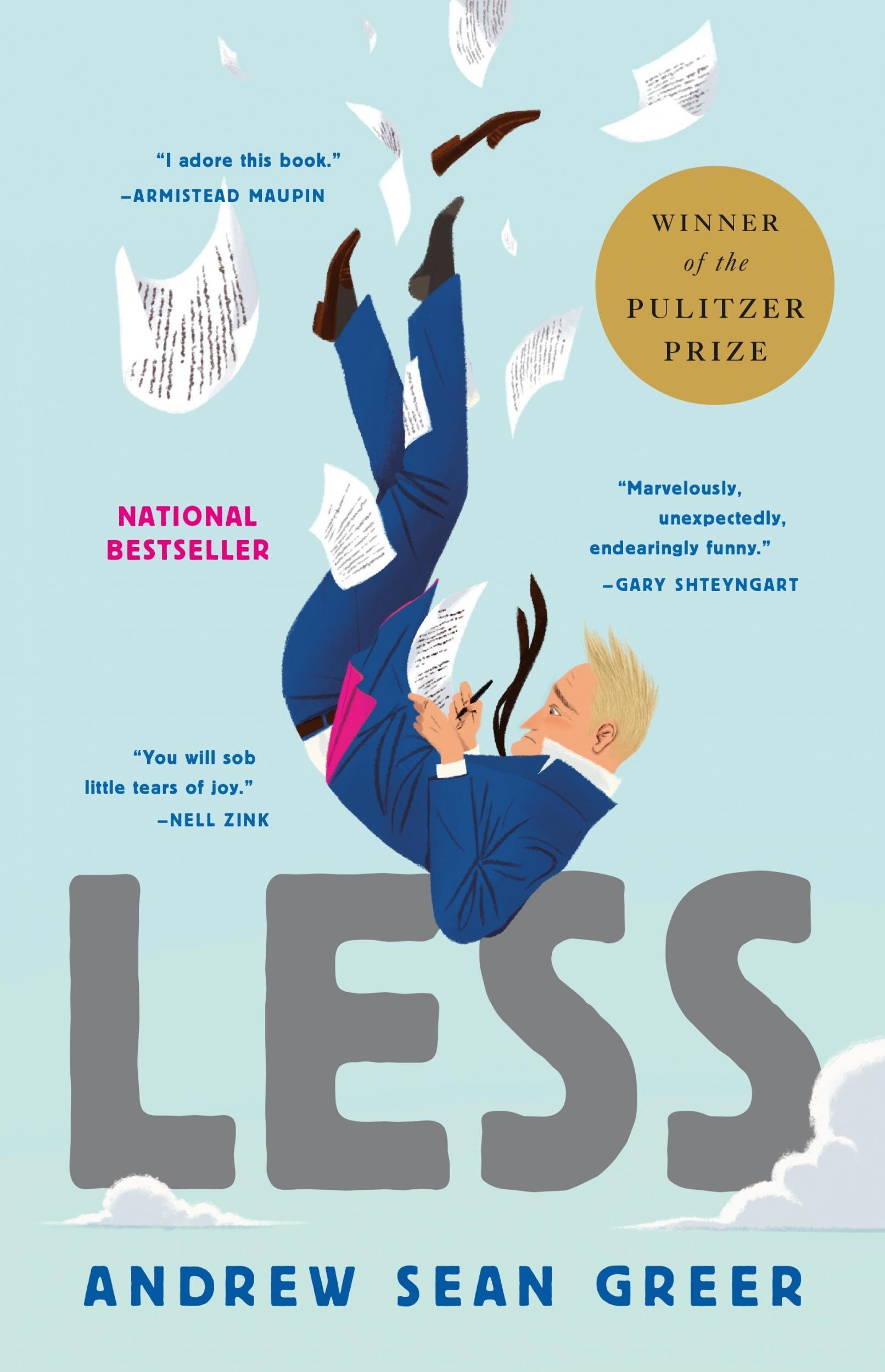Less, Andrew Sean Greer, review: Pulitzer-winning work is witty, wise, and wistful
A charming novel about a middle-aged odyssey taken by the most amiable of heroes

Your support helps us to tell the story
From reproductive rights to climate change to Big Tech, The Independent is on the ground when the story is developing. Whether it's investigating the financials of Elon Musk's pro-Trump PAC or producing our latest documentary, 'The A Word', which shines a light on the American women fighting for reproductive rights, we know how important it is to parse out the facts from the messaging.
At such a critical moment in US history, we need reporters on the ground. Your donation allows us to keep sending journalists to speak to both sides of the story.
The Independent is trusted by Americans across the entire political spectrum. And unlike many other quality news outlets, we choose not to lock Americans out of our reporting and analysis with paywalls. We believe quality journalism should be available to everyone, paid for by those who can afford it.
Your support makes all the difference.Originally published in America last year, Andrew Sean Greer’s bittersweet comic novel Less arrives in a UK edition complete with the accolade of having won this year’s Pulitzer Prize for Fiction – pronounced “Pull-it-sir,” Greer’s hero Arthur Less’s one-time boyfriend Robert, an acclaimed poet, learns when he wins one, “not Pew-lit-sir.” “Turns out I’ve been pronouncing it wrong all these years,” says the shell-shocked wordsmith.
When Greer’s novel begins, Arthur Less is recently single and about to turn 50. Less is a moderately successful novelist. His critically applauded debut, Kalipso, was a retelling of the Calypso myth featuring a doomed love affair between a Second World War soldier washed ashore in the South Pacific and the man who nurses him back to life, and his current work-in-progress is a walking tour of San Francisco, in which a footsore protagonist revisits the disappointments of his past.
“All you do is write gay Ulysses,” Freddy, Less’s most recent paramour, points out. In a neat inversion, Greer’s novel is a grand tour. With sudden desperation born of not wanting to attend Freddy’s forthcoming wedding, Less grabs at a host of invitations – interviewing a famous author in New York, a prize-giving in Italy, a teaching fellowship in Germany, a nomadic adventure in Morocco, a writing retreat in India, and finally some food journalism in Japan – circumnavigating the globe, reflecting on his own past as he goes.
I’d be lying if I said I was laughing out loud while I read, but Less is witty, wise, and wistful in equal measure, sometimes all in the space of one page.
“Did you ever wonder why you haven’t won awards?” Finley Dwyer, a fellow writer, asks Less. “Why the gay press doesn’t review your book?” Our self-effacing hero assumes the worst: “Maybe I’m a bad writer?” he proffers. No, Finley decrees, Less isn’t a bad writer, it’s worse than that: he’s “a bad gay.”
“It’s our duty to show something beautiful from our world,” Finley lectures Less. “But in your books, you make the characters suffer without reward. If I didn’t know better, I’d think you were Republican. Kalipso was beautiful. So full of sorrow. But so incredibly self-hating. A man washes ashore on an island and has a gay affair for years. But then he leaves to go find his wife! You have to do better. For us. Inspire us, Arthur. Aim higher.”
Greer certainly takes his own advice with Less. There’s nothing self-hating about the compassion with which he handles his haplessly loveable protagonist, nor the way in which he eventually rewards him either. There’s also something surprisingly refreshing about seeing ordinary middle-age taken seriously as a subject, and the “miracle” of having survived life’s “humiliations and disappointments and heartaches and missed opportunities, bad dads and bad jobs and bad sex and bad drugs, all the trips and mistakes and face-plants of life, to have made it to fifty.”
Less is a charming novel, and the vehicle for the most amiable of heroes.
'Less' is published by Abacus, £8.99
Join our commenting forum
Join thought-provoking conversations, follow other Independent readers and see their replies
Comments